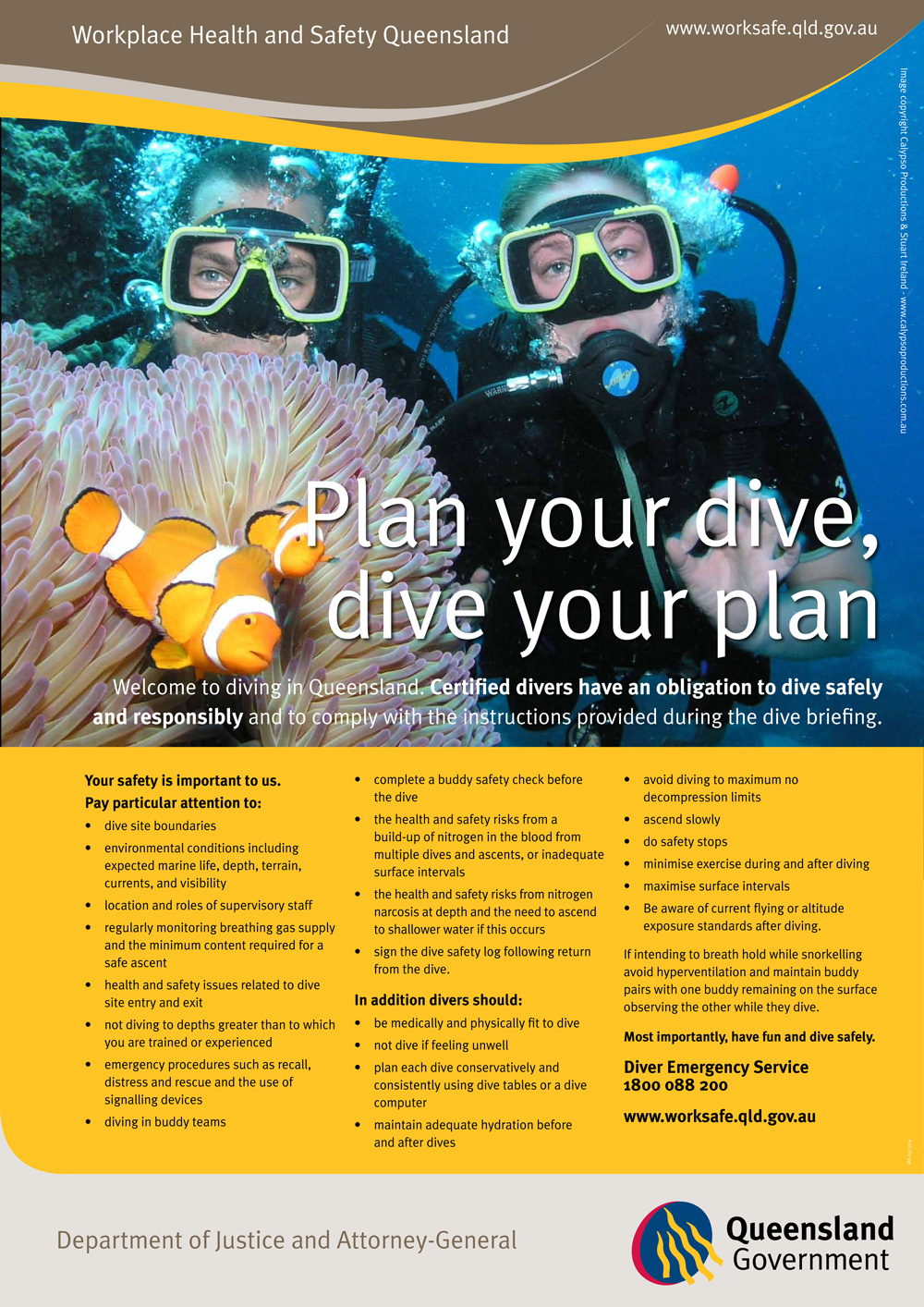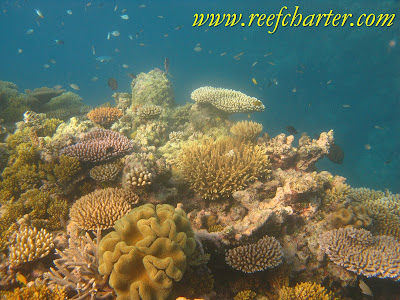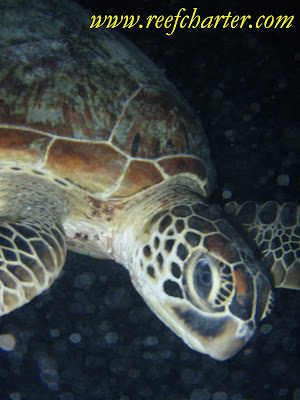The Diving Industry regulator for Queensland has produced a great poster outlining the responsibilities you have as a scuba diver. The workplace safety organization in Queensland, Australia engages with industry on a regular and consultative basis to ensure we remain the safest place to dive in the world.
The poster is also a reminder for some of the pre-check procedures we as divers sometimes take for granted. If you want a copy of the poster for your dive shop please contact Workplace Safety on 1800 088 200 or via their website
Tag: Scuba Diving
Enjoying Your Reef Dive & Snorkel
Understanding the reef and the ecosystem that it is part of brings a much better fulfillment to each dive or snorkel that you partake in. Every reef is slightly different and the marine life and coral formations can vary a great deal with reefs just a few miles apart. Going with an operator that knows the reef and the ecosystem is a definite pre-requisite to getting the most out of every time you hit the water.
A basic understanding the life-cycle of a coral reef helps you understand what you are seeing take place in front of your eyes. Coral form in different ways in different parts of the world and each location may have it’s peculiarities due to tides, currents, temperatures and a myriad of other factors. So it is best to dive with a local expert and someone who cares about the reef that you are diving. There are plenty of predators and destructive forces that prey upon the corals that make up the beautiful underwater landscape. This is a natural part of the life-cycle of a reef and is why you will see parts that appear dead or like rubble. The healthier the reef, the higher the percentage of coverage of coral, however there always needs to be some areas that are not covered so new corals can take hold and grow as part of the reef. Much like a tree needs a break in the forest to get sunlight to grow, often a larger tree must die and fall for this to happen and the life-cycle to continue.
The fish, turtles, sharks, starfish, rays and other marine life that surround reefs are also part of the balanced ecosystem. Local knowledge and educated staff can tell you the role each of them play. Are they are predator? Do they eat algae? Do they eat the coral? Do they filter water? Each of them have their special place in the ecosystem. This balance needs to be maintained to keep the worlds’ reefs healthy and vibrant for the next generation. The healthier the reef the more resistant it is to any disease or adverse impact it may suffer. Feeding fish while it may make your dive or snorkel more exciting as after periods of time marine life will flock to the area, it upset the balance that the reef has taken generations to reach.
So on your next trip study a bit before you go and learn about the area and ecosystem you are about to visit. You may even learn something the local expert has yet to discover. Then choose the tour carefully to make sure you get the most you can out of your experience.
10 Things to Check Before Your Next Dive Trip
Here are the Top Ten Things to Ask Your Dive Company Before You Book Your Trip with Them. Remember the difference in price is often the difference in quality.
1. Is your dive equipment serviced by trained and certified technicians?
This may seem obvious, but worth checking. Make sure the servicing is performed as per the manufacturers’ recommendations. Common mistakes include reusing consumable items, trying to service the equipment without the proper training and leaving it too long between servicing.
2. Are they a member of a reputable and recognized training organization?
There are too many too mention here but the most common ones are SSI, PADI, CMAS, BSAC, TDI/SDI. This is important too ensure that they are kept up to date with the latest in training and procedures in case anything does go wrong.
3. How Many People are Diving at Once?
To truly enjoy your dive experience it is best to keep the numbers in the group as small as your can. This also reduces any impact that you may have on the environment, such as scaring away fish and stirring up the bottom.
4. What is the Ratio from Instructor to Student or Guide to Diver?
There are regulations covering the first point so numbers will vary under that amount, but it is best to ask before you go so you are not shocked. If you want a smaller group you may have to pay for it. Smaller amount of divers per guide allows for a much smoother and personal dive, allowing the dive to be tailored for what you expect to see on the dive.
5. Are they a member of a relevant local dive organization?
Like point 2 above this ensures that you have a operator that is involved and up to date with the latest guidelines or safety procedures for that region.
6. Do they support local or global efforts in conservation or research?
This gives you a great indication on the attitude of the dive company and makes sure you get great dive karma. Sustaining the marine environment shows the company is interested in the longevity of the local or global ecosystem and is doing their bit to contribute.
7. Do you have travel or dive insurance that gives you the coverage you need?
This will include all sorts of things that may happen that can throw your dive trip into disarray. These may include an illness, illness of a relative, travel agent or operator going bankrupt, weather related cancellations, flight cancellations.
8. What is the cancellation policy of the dive company?
Do they give full refunds for weather or other cancellations? Do they have an immediate no refund policy for cancellations or are they flexible?
9. Are the owners or managers going on their own trips?
Quality control to make sure that you have a great experience is often done with management teams that have a more hands on approach. By taking the time to experience the trip and meet the guests shows that they are going the extra mile to make sure you have the best experience possible.
10. How far is the boat/resort really away from the hotel?
Often people follow the old “we’re just 10 minutes away” story. Use Google Maps or other technologies to get a true picture of where you are in relation to the boat. Better still see if they can arrange transport for you to arrive at the boat on time and not have to lug dive gear around.
Night Diving on the Great Barrier Reef
Diving at night opens up an entire new perspective on the Great Barrier Reef highlighting different formations and wildlife that are not normally seen during the day. Different fish behaviour and activities are often displayed at night much different to the daylight hours.
Here an inquisitive turtle has followed our divers on their dive. Swimming alongside them for several minutes exploring the reef with them. Thanks to Malcolm one of our guests for this great photo.


